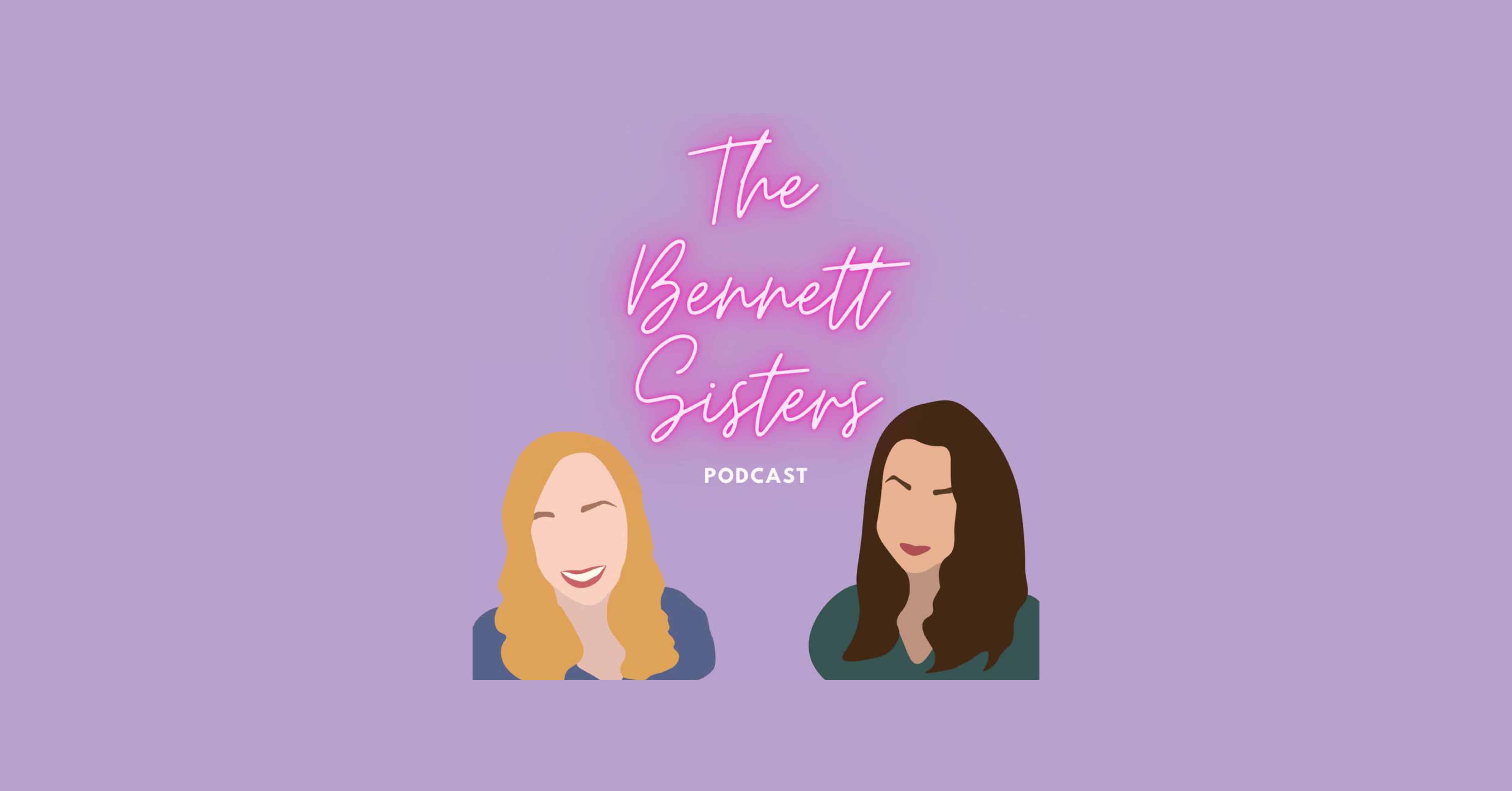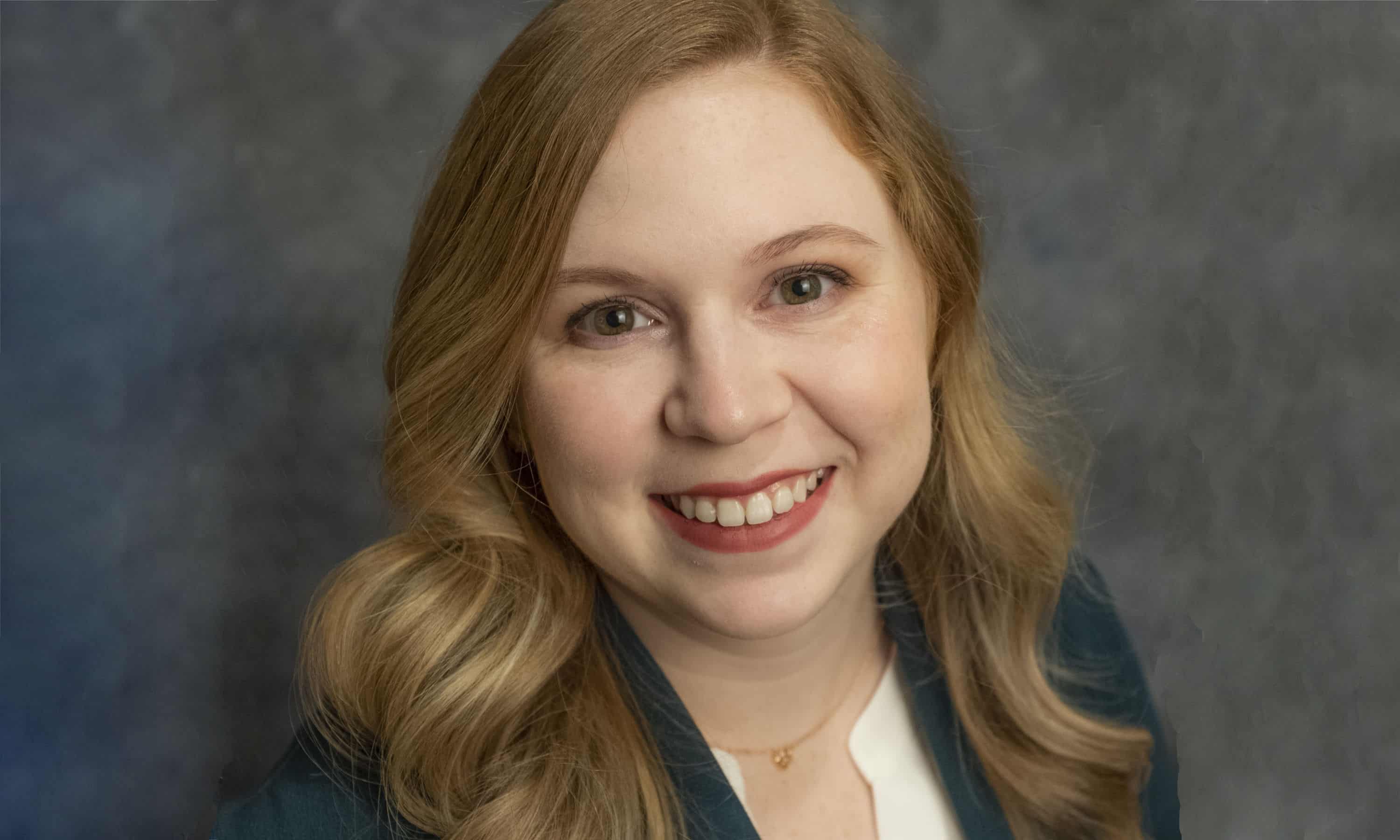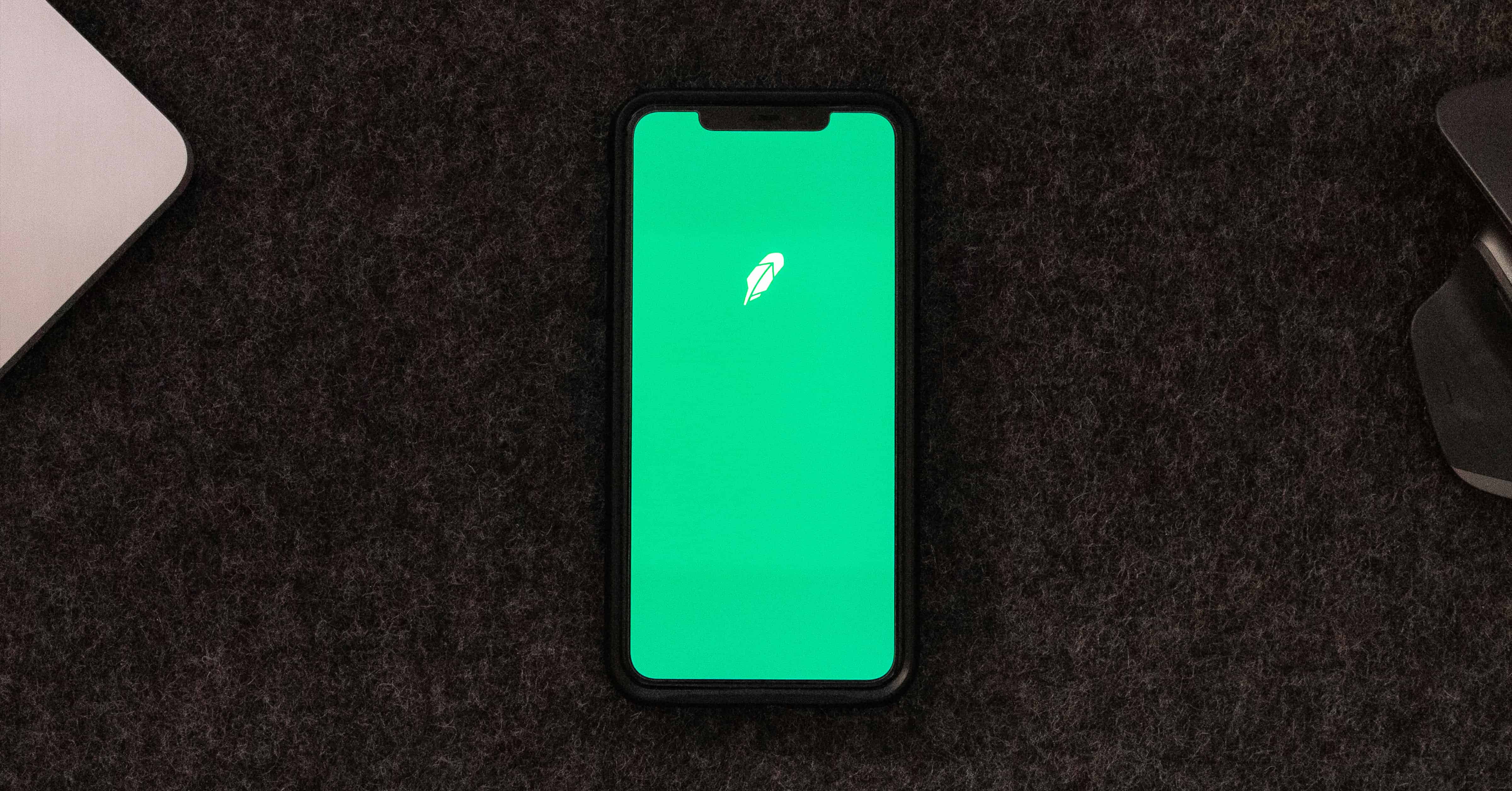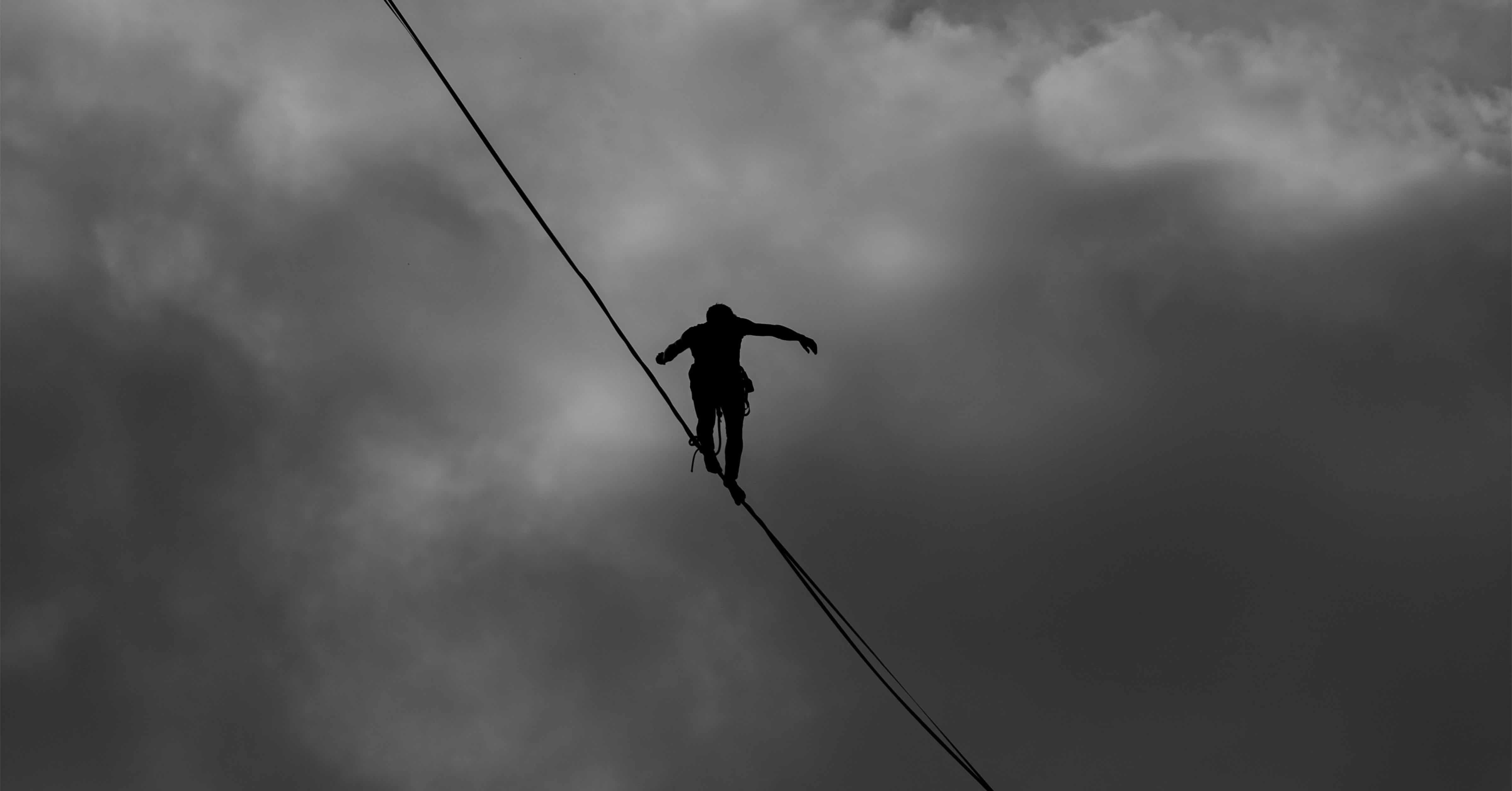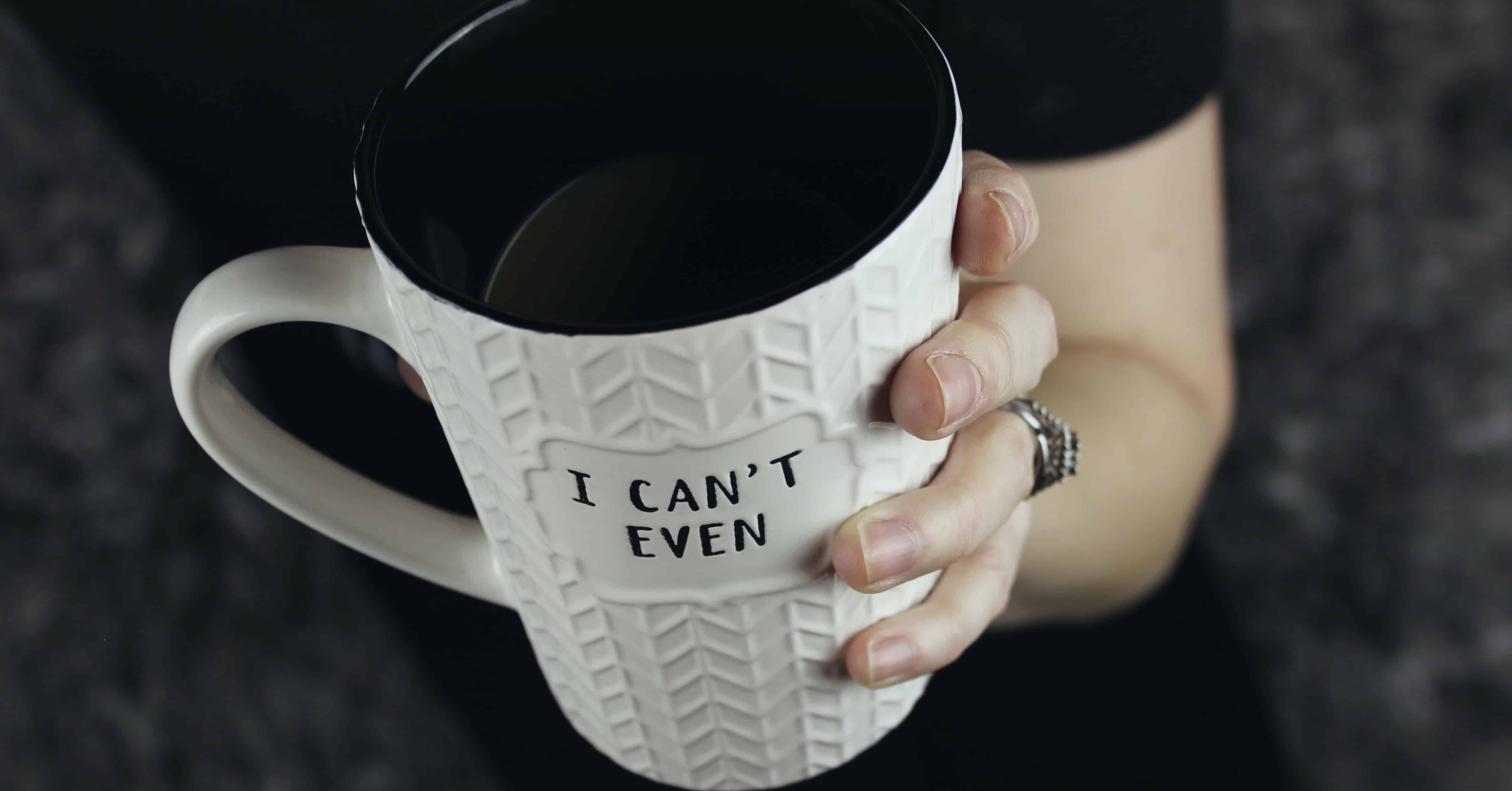Do you ever possess the ability to understand generations that think differently than you? To help you understand the approach, drive and integrity of millennials in today’s workforce, Jimmy interviews two outstanding and talented women who have made and will continue to change the world.
Episode Keys
- The challenges millennials face from preconceived ideas of performance, capability and dedication to their careers
- How to empower a millennial to collaborate with different generations to achieve success
- What is important to millennials and how you can help them become greater contributors to your organization
- Why avoiding stereotypes is critical to your company finding the right professionals for the future success of your organization
- When is the best time to stretch your mindset about the future of your organization
Podcast Transcript

JW: Good morning! This is Jimmy Williams, your host for Live A Life By Design, your Monday morning moments of motivation to help you live a bigger, better, and bolder life. I am so excited for this time of year. I got to tell you, man, I am on pins and needles. The pressure has been unbearable to this point. And I know what you’re thinking. I’ve got just a few days till that good old jolly St. Nick comes once again to my house, and will he bring this year more coal? Or will I actually get a gift this year that’s something useful? I’m kind of leaning toward probably the coal thing again this year. During COVID, I’ve probably not been as nice as I should have been, maybe. I don’t know, you know, we’re all on pins and needles. But today, I’m going to tackle a subject that is going to change your world forever for those of you that are entrepreneurs, for those of you that own companies and work with millennials. I’ve got two of the best in the world – and that’s an unbiased opinion – two of the best in the world at what they do in life, and that is make people smile. So, I’m going to introduce our two guests today, and we’re going to have a conversation today that’s going to enlighten you, I hope, inspire you as well, and hopefully contribute to an awesome Christmas for everyone on the globe. I do want to say before I introduce these two outstanding professionals that their voices today will be heard by 27 countries. That is a lot of countries on the globe, and I don’t want to pressure them in any way to say that that’s causing them to be concerned, because they themselves are the founders and artists for an outstanding podcast called The Bennett Sisters. Would you please welcome Ashley and Sara. Welcome, guys.
AS: Thank you.
SB: Hello. Good to be here.
JW: Oh man, I got to tell you, when we booked these guys, I tell you, they’re so hard to get, folks. These people are in such demand now, it is incredible. You’ve just got to wait your place in time. You’ve got to stand in line, and then they give you the yes or the no, and it is a pressure-filled situation. But I am honored that you ladies have joined me today.
AS: Well, good.
SB:
You should be.
JW: You see what I’m in for folks, right there. I love this. I love the energy. Okay, so today we’re going to talk about millennials, which you two ladies, I’m assuming you take that role with pride.
SB: I do.
AS: Yes.
SB: Yes, definitely.
JW: Very good, okay. And so at the end of the day, I’ve got just one big question to start off this discussion today. And this is the, probably, toughest question you’re going to get all day from me, because I have spent a lot of time, I’ve researched information about you two, personal information, which we won’t reveal on the air. But I do want you to know, I’ve got a lot of research done. But this question’s probably the hardest. Here it goes. What, Sara, would you describe as the perfect Christmas for you?
SB: So, I think the perfect Christmas for me, primarily, is going to involve family. You know, getting together with your family. Obviously during 2020, we have COVID going on, so there’s going to be a lot of times that people aren’t going to be able to get together. But even just being with your immediate family and just having that warmth in your home. It’s nighttime, and you see the glow of the Christmas tree, and you see all the presents underneath it. I like to just stand there and just look at it and take it all in, and just feel the magic of Christmas that you felt when you were a kid. And it’s just creating that same magic for my children. You know, knowing they get to feel that warmth, and they feel that love, and they get that excitement. And they can’t wait till Christmas morning. Maybe they sneak out of their room in the middle of the night to see if Santa left them anything, and they just gaze at the Christmas tree. It’s just about creating that magic and creating that love for everybody, and just the joy of the season.
JW: Oh man, folks, if you could see her face when she’s saying this. She is smiling from ear to ear, all right? But I will tell you, I’ve got to ask the hard questions. That’s what we do on Live Life By Design, Sara. We don’t just give fluff questions like some of the mainstream media do. This tough question for you is this, while you were standing at the tree, just in awe of everything that it stands for at Christmas, did you or did you not shake one of your gifts?
SB: Yeah, definitely.
JW: That’s honesty, folks, right there. Because you know, we’ve all done it, Sara. You just didn’t want to admit it till I called you on the carpet about it. Because, you know, you didn’t tear the paper. If you’re a professional like me, you can do it without tearing the paper. They don’t even know you’ve even been there. You place it in the specific spot that it was, and everything’s good.
SB: Yes.
JW: But that’s a wonderful Christmas. And I know you’ve got kiddos, and I can expect they have nothing but the best Christmas. So Ashley, tell me your perfect Christmas.
AS: Well, I don’t want to sound like a broken record and say the exact same thing, but definitely being with family. But I think my perfect dream Christmas would be to travel to New York City at Christmas time, and basically just live through like, a cheesy Christmas movie. That’s kind of what I want. I think that would be really cool. But I mean, really, the perfect Christmas is just to be with family. That’s really what it’s about.
JW: Home Alone Four, starring Ashley Stieb. Lost in New York, while her husband’s trying to find her.
AS: Lost at Bloomingdale’s.
JW: She’ll be somewhere along Fifth Avenue, officer. I’m not sure which store, but she’s somewhere along this corridor right here, yeah. Those are really great Christmases. Let me share one thing with you that hasn’t changed from Millennial to gosh, what generation am I, Ashley?
AS: You would technically be Gen X, yes.
SB: X, you’re right on the cusp.
AS: Yeah, yes, you’re right…
JW: Yeah, I’m right after the boomers. Yeah, right on the cusp, oh gosh. So, I’m the X man. If you could think of me as Charles Xavier today, I’m the X Man. So, my Christmas, you’re going to laugh, same thing as what you mentioned, but I’m going to add a little twist to it. We always had this time at Christmas where it wasn’t all about the gifts. But my dad would read this Christmas story. I had it almost lip syncing by the time I was 13. You know, because you’re 13. I know Sara wasn’t this way for sure, but maybe Ashley was. But when you’re 13, you kind of know it all and you’ve seen it all and you’ve done it all. Because aren’t we all that way?
AS: Of course.
SB: Of course.
JW: So, my dad’s reading the Christmas story through, and I’m just sitting there going, you know, I’m just lip syncing along with it. And my mom looks at me, and I’ll never forget. And I was only like, 13, so guys, this was a long time ago. And my mother says, “You need to be thankful for this story, because there will come a day you’ll want to read it to your children, and you’ll see the impact it makes.” Now, this was my mom, right? And moms have no credibility when you’re 13. Do they not?
AS: Yeah.
SB: Yep.
JW: Okay, well, so anyway, guys, that was one added twist to ours. We always had the Christmas story, and it was so awesome. And then, as I got older and started reading to my kids, which are now grown, I love to pass that tradition down. So enough about Christmas, though. Let me ask you this, if you could tell me one instance in your background of something in your life that you just felt ultra successful about, what would it be, Ashley?
AS: For me, I think my greatest success would be graduating college. At least, to this point of my life. Because that was pretty much the bulk of my adult life so far, was just spent in college or trying to find a way to make it happen. And when I finally did it was just like, oh, finally.
JW: So folks, let me fill you in a little bit of what she’s not disclosing. I did the research on this. She spent eight and a half years on a bachelor’s degree. I’m not sure what all she did.
AS: Well…
JW: There are lots of memories, that’s all I can say. I don’t want to tell you more than that. There’s lots of good memories. But anyway, no, so that’s a great, if you will, milestone. But now, there’s bigger milestones to be achieved. So, what’s up next for Ashley over the next, say, five, six, 10 years?
AS: I think it’ll just be to really start “adulting” as we millennials love to say. You know, starting a family, buying a house, just excelling in my career and that kind of stuff. Just living life.
JW: I love it. So, you’re no different than what we were when I was in my 20’s and going, “I just got several big nuggets or rocks I’ve got to achieve over the next 10, 15 years.” Sara, tell me about your life. What’s the one big successful thing, besides children. Because you do have a beautiful daughter. You can’t claim her. I’m talking about anything else.
SB: Mine is also graduating. I got my associates this year, and I had made the decision a couple years ago to finally go to school. I spent a lot of my life waiting tables and stuff like that, and just kind of living paycheck to paycheck, and now that I’m a little bit older, I felt like I was a little bit more prepared to make that decision, and it was really hard, because I was working a full-time job, and I did all my classes online. And I had my daughter. You have your home you have to take care of. So it was a lot of stuff to take care of. But I pushed myself through it and I got it done. And Ashley knows, for the longest time, I had made excuses about it. I was like, “Well, you all don’t have to come to my graduation. It’s just an associates, it’s not a big deal.” But it really was a big deal, because I put in a lot of hard work for it.
JW: I’ll let you know, Sara, I am the first of my family to have graduated college with an undergraduate degree.
SB: Really?
JW: The only one in my family with a master’s degree, and I’ve got about six hours toward a PhD. I am a firm believer in education, both formal and informal. Ashley would tell you, I ordered these things called The Great Courses, which are not sponsoring this episode or any kind of money to say that. It’s just, I love that learning capability. Because that’s what separates us from others, right? That gives us the edge you’re talking about in life, that success. So, I am so proud of you. Don’t ever say the word “just” in front of anything, because I think it just cheapens it, right? Instead, say, “I got my associate’s degree, and I kicked some hiney doing it, because I had to do all these other adulting, ” to use Ashley’s word, “things in life. You know, take care of my child, which has to come first.” So, I can picture you doing some studying pretty late at night.
SB: Yes, yes.
JW: Was there any alcohol involved?
SB: There was not, actually. I’m actually not a big drinker, surprisingly. And I think that it probably would have hurt me more than helped me. Because I’m a bit of a procrastinator. So there were times I had a paper due that evening, and I maybe wrote it earlier that day.
JW: Now Sara, you immediately jumped the fact that I was talking about you inducing alcohol. I’m talking about NyQuil. We all know that’s Christian whiskey. I drank a lot of NyQuil, because the church doesn’t mind the NyQuil, okay? It’s medicinal. And just that little shot of that great good green stuff, right?
SB: Mm-hmm.
JW: It really clears my head to do homework and papers. And I just didn’t know if you use the same thing.
AS: Sure.
JW: Well, you know, call it what you want to call it. I call it Christian whiskey, okay?
SB: There we go.
JW: So let me ask you guys another tough question that I think will fare it out to the world of listeners, thousands upon thousands of people listening to this, and I want you to help me help them. What is it we get wrong for us Gen X’ers in working with – because Ashley will tell you, I hate the word working for. You don’t work for people, we work with people, right? – what do we need to do better in helping Gen Z’s and millennials to really reach their potential?
SB: Oh, I don’t know what you can do about Gen Z. I’m just kidding. I think a lot of it is probably going to come from a lot of boomers like Gen X lived through a certain time where it was like a “pull yourself up by the boot straps” kind of time. And they make fun of millennials a lot, saying we’re like the, “they told you you could do anything you want kid,” and the participation trophies. You know? But the truth is, we really do want to make the world a better place. I don’t know if I’ve met a millennial that doesn’t want to do that. And we want people to be taken care of. So we’re really more of an inclusive group of people. And we’re hard-working. We really are. And we’ve had to put up with a lot of stuff throughout our lives and a lot of obstacles throughout our lives. And I think that a lot of the older generations just need to look at us and say, “You know what? They are putting in the hard work, you know, the same kind of hard work that I put in, but it’s a different time, so it seems different.”
JW: So what you’re saying really, Sarah, is that like my dad always said, “I had to walk 10 miles to school barefoot in the snow, uphill both ways.” Which, I never figured that one out. But anyway…
SB: I think our dads went to school together.
JW: Yeah, so you would say, as a millennial, you’ve done the same thing, but perhaps you had shoes.
SB: Right.
AS: Exactly.
JW: Oh, snow boots. Hey, that’s even better.
AS: Literally though, literally, I walked like a half mile to school uphill.
JW: Oh, wow. Folks, we have heard it here now. A millennial walking to school. I love that, I love that.
JW: So Ashley, what is your thought in terms of the great employer you work with? I mean, I understand there’s a leader of the company you work with that is so outstanding, he just hires the best, gets out of the way, provides leadership when it’s necessary. How do you feel about the process of how you could be even more involved in your company you work with?
AS: I mean, my boss or whatever word he would like me to use, he’s just so great. I don’t really have any…
JW: Okay, cat’s out of the bag by all the giggles. So, she works with our team. And she is, I got to tell you folks, A-W-E-some. She is awesome at what she does, and that’s why she was so nice to come on the podcast today. But notwithstanding who you work with now, for example, what would any great employer need to exhibit to you, for example, to add to what Sara’s talking about, to help you reach your best potential? Because that’s really why people hire other people, right?
AS: Yeah, yeah. I think really, they just need to give us a chance. It feels like in some of my previous jobs, you were young, and I’m in this professional setting. And they see me and they’re like, “Oh, well, she’s just a kid.” And they kind of stop it there, and they don’t really give me the chance to show that I actually have something to provide to the team, and I’m worth something because I do work hard. I have a good work ethic. Now, I’m bragging on myself.
JW: It’s okay if it’s a fact. It’s okay if it’s a fact.
AS: I think that’s really it. We just want to be appreciated and given the chance to actually go out and do something great.
JW: So, I am going to embarrass Ashley a little bit. That’s why we don’t do video on this podcast, folks. I don’t want you to see her face turn red. But in a lot of the things that we do on our marketing side, the equation for our company, Ashley has done ten-fold better in the short time been with our company since January than what I’d accomplished in the last 10 years. She just has this uncanny ability. Now part of that, I think, Ashley, is attributed to your education. But a lot of that is attributed to the curiosity you bring to the process of design and ideation and creation of pieces that we need to put in the marketplace. And I want to commend you for that. So, what could you do, if you could talk to the person you work with right now, he’s looking at you, by the way. And he could say, “What tools could I give you to make this even more creative for you?” And I don’t mean tangible. Maybe it’s tangible, but what tools could I bring that would even allow you to grow from there?
AS: I mean, I really just think education is going to be the biggest tool for me. Just learning more about the industry itself, and then marketing itself and putting the two together, to grow with the company and bring it to it’s full potential.
JW: Man, I like that answer. I’m going to talk during our next budget meeting about that. That’s really great. Miss Sara, real quickly, gosh, you’ve got a lot of talent in a lot of areas. But give me a little bit of background about your life. As opposed to walking uphill 10 miles to school in the snow barefoot, what’s some real information about your background that you perhaps, look back and say, “Hey, this honed me to be the Sara that I am today”?
SB: When I was young, I lived with my mom. So, I was raised by her. She was a single mom, and she did what she had to do, to make sure we were provided for. You know, she would work odd jobs and just make sure that I had what I needed, and make sure we had food on the table. And then, as I got a little older, she ended up going to college. She went to nursing school. And she put herself through nursing school. So there were times where I would have to sit outside of her class and wait for her to get done, or I spent a lot of time with my nana or my cousins and my aunts. And I really think that impacted me, because it kind of showed me that you’re going to get it done. One way or another, it’s possible for you to get it done and to elevate yourself from a position that you were in. So if my mom could do it, I know that I could do it. And I really think it instilled that work ethic in me that I’m just going to get it done. It might suck for a little while, and I might be tired, but the end result is what you’re going for. You have a goal you’re reaching towards.
JW: You know, I don’t know that I’ve met your mom, but I will say though, I think she’s aces. Because that’s the best lifestyle education she could have given you was the living of an example of how this works. And you know, she could have folded her hands and said, “You know what? I’ve done the best I can, call the state. I’m done.”
SB: Right.
JW: But she didn’t. She worked hard. She went through all that. I will tell you, my dad instilled in me… As I said, youngest of six, so my dad was quite a few years up by the time I came along, right? And he instilled in me this thought, Sara, that you’re going to love. I hope, I hope you do. And he said this. He said, “Do not rely on anyone else for your success or your failure. It is all on you.”
SB: Absolutely.
JW: Catch that? Now, this came from a guy that has a sixth grade education, seriously. But I thought, “Dad, that is profound.” It’s so profound, it’s in my book that’s coming out here next spring. I mean, I thought that was really awesome.
SB: Yeah.
JW: So, what’s he really saying, Ashley? He’s saying, “Own it.” And now, millennials, don’t you agree that you guys own your success or your failures?
SB: Absolutely.
AS: Absolutely.
SB: Yeah.
AS: Oh, in unison. I love that part.
SB: We spend a lot of our life in unison like that.
JW: I love that. You know, so tell me Ashley, real quick, something about your childhood that had such an impact on you and the success you’ve had thus far. And I can tell you, there’s miles for both you ladies to go. You’re going to do great things in life, as well. But tell me something about your childhood.
AS: So, I grew up the typical military brat lifestyle. Being around a lot of different people, and in a different country. I grew up overseas. And I think that that has kind of helped me to become a very well-rounded individual, and an accepting and understanding individual. Which has also shown in my work ethic. Because I don’t just full stop when I see someone because they look a certain way, or they are a certain age or anything like that. I’m just like, “Well, you know what? There’s another person on this earth just trying to do their job. I’m trying to do mine, and so that’s just what I’m going to do.”
JW: That is awesome. So you again, subscribe to one of Jimmy’s profound statements is, I’m just seeking some way to find peace with everyone, because that’s all we’re after on this planet. You know, the rest of this stuff, to be honest with you, is just added. I mean, it really is. If you’ve got peace, you can be the most poor of poor, you can be the wealthiest of whoever in the world. And if you got peace, either way you go, you’re going to live a pretty good lifestyle, in my opinion.
AS: Yeah.
JW: Is that a fair statement to say to a millennial?
SB: Yeah, I believe so.
AS: Yeah, absolutely.
JW: Because I do know several, like, I’ve got nephews that are just bent on making millions. They just, money, money, money, money. And I keep telling them, they go, “Hey, but you know, I got to have this money, this money, this money.” I go, “Look, money’s all great and everything. And my wife has never said that it didn’t match what she was wearing. I mean, money always goes with everything.” But I’ve told him, I said, “Do you realize some of the most happiest of my times were in undergrad school when I didn’t have 30 dollars to rub together?”
AS: Yeah.
SB: Right.
JW: He said, “How could that be?” And I said, “Look man, they didn’t even have chicken nuggets when I was in college. I mean, we were just getting the quarter pounder out, you know?
SB: Oh my gosh.
JW: So what I want to ask you, what’s most important to millennials then? Is it materialism? Or is it something else?
AS: I think it’s just living a happy and fulfilling life. And just making everybody happy. I think that’s one thing that all millennials have in common. We just all want to be friends.
SB: We do. We do.
JW: So you brought this up, Sara. I’ve got to ask, so my daughter’s 19. She goes to OU. And so, I’m on social media so I can see some of the activities she’s on that she’s really big on Instagram and things. And Ashley’s now helped me get on those platforms, probably to the regret of all my family. But anyway, I blame Ashley every time they go, “How did you get that?” “Ashley set it up, I don’t know. All I do is hit this button.”
AS: Oh, they’re going to hate me.
JW: They love you already. So Sara, help me out a little bit. How does someone bridge that time and perhaps that mentality from my age to that 19, 20 year old, going back to that level, you know, Gen Z’s, right? How do they bridge that to where I can like something they do, without it coming across like, “Hey, this old man liked my stuff.” What do I do?
SB: Right.
JW: Give me some thoughts.
SB: Oh you know, I think, the millennials and Gen Z, we just want people to be accepted and everything like that. So I feel like a lot of it’s going to come from educating yourself on different topics. You know, different things that are going on. Gen Z and millennials are very political. Educating yourself on those things, and working on yourself. Like, being accepting of other cultures and the fact that the world has changed from back in the day. So, if you can accept the way the world is moving now and just progress with it, I think that would be a big help.
JW: You know, you are excellent, and wise beyond your years. So, I do accept the world. Do I understand all of it? No, I really don’t, but I’m working on that. So my daughter… You’re going to laugh. I’m going back to school, if you will, to learn the sociological impacts of what’s going on, because the world is different at the college level than it was in 1983, Sara, ’83. You weren’t even a blink of your daddy’s eye at 1983. So it’s just a big challenge. And I think as millennials continue to make an impact, which you do know, you’re the second largest group demographic in the United States, right? Boomers are ahead of you by the number, but hey, you’re catching up because of the mortality rate, right?
SB: Right.
JW: And I’m telling all of my friends that are entrepreneurs like myself, and I’m going, “You have got to hire these great people.” And they are saying some of those stereotypes, you know, “Oh my gosh, I don’t want the drama.” And so forth. Now, I’m going to be honest with you, I’ve not experienced any of that.
SB: No.
JW: Ashley, you’ll attest to that. Do we have drama in our office?
AS: No, but I also really don’t like confrontation, so…
JW: Yeah.
AS: I’m not going to bring it.
JW: Yeah, so I’m saying to you, what can we do as entrepreneurs to help entice? What kind of environment would you like to have, Sara, to entice you to come work with us in our chosen field, whatever that may be? Assuming you got the background to do it.
SB: Right, so… Oh man, that’s a tough question. You do ask tough questions, don’t you?
AS: I told her you did.
JW: Ladies, this isn’t NBC, okay? We do the real deal right here, okay?
SB: I think it is probably like I said, going back to just accepting us. And all working together in more of a teamwork environment. Because we all work together really well, and we want everybody to succeed. So getting people together, getting people on the same page, and working towards the same goal is amazing. And it’s super productive for everybody involved. And we just want the chance to prove we can do that. We absolutely have the skills. We are problem solvers. Now, let us solve some problems. We can help you. The world is changing. Let us help you understand the change if you don’t understand it, and we’ll get there together.
AS: Yep.
JW: And one thing I love about what you said, Sara, is, “I may not do it the way Jimmy did it 30 years ago, but I can get to the end quality of results.” So for example, I don’t even want you to come up with the same result in our area of creativity and what I know. I want you to come up with something better, but you can take your way of getting there. As long as we uphold our ethics and do the right thing, you know, you’ll get the answer you deserve based on your background and talent. Ashley, tell me a little bit about how you approach difficult and challenging situations with your mindset of creativity.
AS: So what’s an example of a difficult and challenging situation that I would come across? This will help me.
JW: So, this never happens. But let’s assume that I gave Ashley a project of say, a slide deck on PowerPoint that I did in a very rudimentary way, just to get the point across of places I go speak. And I hand it to her and I go, “Hey, no pressure, here’s like 85, 90 slides. Need these back so we can send them to the sponsor in about less than 24 hours.” How do you feel about that? That is not true what happens, Sara. That’s just an example I come up with, hypothetical.
AS: It’s just an example. It never happened.
JW: A hypothetical.
SB: Sounds like an example, okay.
AS: A very specific example. So with that particular situation, I just kind of read through, I didn’t read through all the slides, but I read through the majority of them, kind of got the gist of it, and the feel for it. And typically, whenever I build slides myself, I build them on something that’s not Photoshop, so I can make them look and stand out from the typical Photoshop templates, you know? But for that one, because it was so many pages, or this example would be so many pages.
JW: I have no idea what you’re referring to. I just gave you a hypothetical, so I don’t know.
AS: Mm-hmm, yes. I did use a template, and I just kind of went in and branded it to look a little more what the brand was. And kind of gave it that sleek feel. So I just, yeah, modern feels and things like that. I just kind of have to look at what’s in front of me and see what I can do.
JW: You know, you’re going to laugh. But I do the same thing on creating topics, questions and so forth for podcasts. You know, part of my creativity, not having the background you two ladies have in terms of being creative, I basically had to learn it myself. They didn’t teach this in the field I went into. I went into accounting. They don’t teach you to be creative. As a matter of fact, they want you to be the opposite of creative, right?
AS: Yeah.
JW: Fall in line, here’s the rules, here’s what you do. And so, that’s the freshness that I think millennials bring to those of us in more established businesses is a new perspective, a new outlook, a different approach. All of those things, I believe as an entrepreneur, are good and give our company an edge over our competition in the marketplace. So let’s talk a little bit about, Sara if you would, tell me just a little bit about what the next phase of your career looks like for you. So, we got your associates done. What are we doing now to move forward?
SB: So now, the next big major goal in my life is joining the Air Force. It’s something I’ve been thinking about for awhile. I worked very close with the Army for about eight years, and I really like the structure of the military. And I realize that even more so after not working on base anymore, moving into a retail job. I really miss that structure, and I miss the organization of it. And there’s a lot of opportunity in the military that isn’t available just to normal people. So, it’s something I’ve thought about for a while and it’s something I’ve been working at. And it’s the primary reason I started working on my associates, so that I could go in with a leg up. I could have something to offer. Especially because, you know, it’s the Air Force. It’s the branch, they’re the smart people, you know. So I wanted to make sure that I had something to offer them because they’re going to be offering me quite a bit, you know. So, I’ve been working at losing weight, getting in shape, doing everything I need to do. And I hope to go in and take my ASVAB hopefully in January, to be honest. And it’s going to be really great for me. It’s going to be really great for my family. Even if the only thing I get out of it is getting a GI bill for my daughter so she can go to college and she doesn’t have to wait until she qualifies for a Pell Grant or anything like that, like I did. I think it’s worth it, a hundred percent, setting her up for success and setting our family up for success.
JW: So what I heard from all that Sara was is that, of course, anyone that has served or is serving in the Army, Navy, Coast Guard, or Marines is just as smart. It’s just, you’ve selected the Air Force based on your unique talents.
SB: Yes, and because they don’t have to run as far.
JW: You know, you’re going to laugh. The reason I’m saying those other branches, my nephew did 20 and went in at 17, by the way. He was going to leave home and told my sister, the oldest of the grandchildren, that he was going to leave home, lie about his age, because he really wanted to be in the Army again, for that structure. So, came from a difficult home situation. My sister was a little bit zealous and had a baby at 16. You know how that kind of happens sometimes. And so, he was pretty young lad. She would have been, let’s see, 33 years of age and he’s telling her at 17, “Hey, I’m going to go in the Army if you don’t sign my parental consent or not, I’m going.” So, he was just bent on it. So he goes in the military, and they took this young man that didn’t really have a disciplinary issue, but learned even more discipline, for example, and he stayed 20 years solid. And I will tell you, he operated some equipment. He was a sniper as well, he operated some equipment that’s several hundreds of thousands of dollars, if not millions, of dollars. And he graduated with a high school diploma and did that. And so, my point I’m making is, is that, the service branches you’re talking about all of them have some great people training wise. You’re going to get everything you want out of it if you put something into it, right? Let’s talk about that, Ashley, what is it that you might feel like you could do better? Not saying you don’t do everything great, but what could you do better, more effectively with additional training? What do you feel would take you to the next level of confidence?
AS: I think just learning about the financial world, because I don’t really know a whole lot about it. I try to pick up on things at work, but you know it’s even more difficult now that I’m not working in the office. So I think just learning more about that and applying that to what I already know would make me feel more confident in what I’m doing every day.
JW: So what I take from that is, you will be immersed even more in 2021 and all this good stuff, the training we’re going to send you to. Seriously though, before COVID hit, we always take our whole team. The entire company goes on some really nice training trips. And hey, you know, like Sara said earlier, you get what you get. So, we had to deal with it a little differently this year. But I promise you, there’s a trip in your future. I promise you that. Maybe to Lawton, but there’s a trip in your future. No, I’m just kidding. For those of you who don’t know where Lawton is, it’s a great city. Great city, metropolis, okay. So do either one of you know where Medicine Park, Oklahoma is?
SB: It’s where I got married. It’s right up the street.
JW: Did you? Oh, great, okay. Well, I got to be honest with you, I had one of the best steaks in my life at a place called, I believe, The Plantation House, at that time is what it was called.
SB: Plantation.
AS: Plantation.
JW: Okay, there you go. So picture this, I’m out there on an audit. I can’t disclose who the client was, but it’s a very large employer out there. And one of the team members said, “Hey, let’s go eat at this place. Last year we went, and it was fantastic.” He said, “I want to take you guys.” My first time out there. I said, “Sure.” So we go out there. Now just imagine, this is near an Army installation. So everyone had these crew cuts, camo fatigues on. We walk in in three piece suits. They’re all looking at us like, “Who are the girly boys that just got here, and how bad can we beat them?” So you know me, Ashley. Sara doesn’t know me as well. I walk in, I just start smiling, talking to everybody. “Hey, appreciate what you’re doing. Thank you guys for your service,” and all this. I sit down, and now these guys want to buy my dinner. I mean, see? Just a little kind word, you know.
AS: Yeah.
SB: Yeah.
JW: They beat my friends up, but that’s okay.
SB: Well, yeah.
JW: I’m just kidding, they didn’t do any of that. So real quickly then, Sara, I need to pick your brain on a couple of things, then. If you could improve one area of your life by simply snapping your fingers – just one area – what would that area be right now?
SB: It would probably be my money management. 2020 has done a lot of stuff, and I have moved to be a big online shopper, unfortunately. And I know that I’m spending more money than I need to be spending. And I want to save it. I really do, I really want to save it. But also, I really want some new mascara and some new pajamas, and whatever else. So, it would definitely be my money management.
JW: So, I’m going to offer you some unsolicited advice, if I could. If you have the money taken immediately out of your paycheck, I mean, as soon as it hits, have it ACH’d to that savings account, investment account, whatever you wish, whatever amount that may be, you’re going to realize, hey, I didn’t see it. I didn’t touch it. I didn’t spend it. And then, you’ll work off of a smaller amount. You’re going to laugh. So, I did this for my daughter. And she calls me just last night and says, “Dad, you won’t believe how much money I’ve saved already this year.” And I said, “Really?” And she said, “Yeah.” And so she’s talking to me about it, and she goes, “Hey, this compound interest and dividend thing’s a real deal.” And she’s a journalist, guys. She doesn’t get money, which is just, “This compound interest and dividends, that’s a real deal.” And so my point is, allow me to help you with that. I promise you, that’ll be great. Ashley, same question for you.
AS: I think that if I could improve anything in my life, it would be not having to pay rent and be paying a mortgage instead.
JW: I love that transition, yes. Buying a house. You know, so one thing millennials do well, I think, is understand what it does take to have home ownership. I’m saddened that it’s so difficult for them to take that leap sometimes in our current economic conditions. It’s just tough, I get that. But there are ways to do this, I think, that would be helpful to millennials. And one thing when I went to work, you know, 1987 I graduated undergrad school, went immediately to work at an international firm. And the first thing they go is, “Hey, have you got a car payment?” I go, “What? No, I don’t have a car payment.” And they go, “You need to get a new car.” So, okay. “Do you have a house payment?” And I, “No, no, I rent an apartment.” And they go, “You need to go get a house.” I’m like, “Why you telling me all this?” And they said, “Well, this is how it works. If we get you in debt, you’ll come to work.” And so, that doesn’t work for me. You know, I’d never tell one of my team, “Hey, let’s get you soaked up on debt, and I know you’ll come to work.” What a lack of motivation that is, Ashley, you know what I’m saying?
AS: Yeah.
JW: Yeah, so let me tell you the one thing if I could improve right now and snap my fingers and have it improve, one thing in life, you’re going to laugh. What topic do you think I’d pick, Sara? One thing in my life, if I could snap my fingers. What area of my life you think I would improve?
SB: Oh, read more books. You got a lot of books behind you.
JW: Yes, I do. Ashley will tell you, she’s helped me order a lot of these, too. I’m a voracious reader. Ashley, what do you think?
AS: I think it would be get back to traveling.
JW: Hey, both of those are my top five, okay? But let me tell you what my top one is. Not to get too sentimental on you or anything, my top one would be if I could just snap my fingers and one aspect of life became much improved, it would be the peace and kindness spread throughout our world. People would be kind to those that are different. So, I call this, Sara, do not laugh at me, because this from my era, Star Trek mode. I don’t care who you are, I don’t care where you came from, I don’t care anything about you other than, you’re a person that needs respect. You deserve that. And kindness, that’s what we do here. So talk to me a little bit about why is it so opposite of that on social media, Ashley?
AS: Oh, I wish I had the answer to that. I think people get too brave behind their screens. They don’t have to see the people that they’re hurting with their words, and so why not just say whatever you think? You’re probably never going to see them. They’re never going to see you in person. They’re going to read this comment, and it’ll probably affect them for the rest of their lives. They just don’t really think about that. So, I think that that’s the biggest part, that the division of the screen and just making people brave.
SB: Yep.
JW: You’ll find a lot of my podcast episodes, I talk about how we can spread kindness, Sara, and so forth. What can I do at my generation on social media to help maybe turn the curve, if you will?
SB: You know, I think it’s really probably offering just more words of encouragement, just to everybody, and showing your support for everybody, and telling people things might be rough in your situation. Millennials, Gen Z, we have a lot of debt. We have a lot of stuff that we’re struggling through, just letting them know things that they can do to help and to get to a more stable place.
JW: Oh, that is great advice. So, last question ladies. It’s been a tough time for you here. But I want to respect your time. I know you’re both very busy and probably have to get online and order my Christmas gift now Sara, that you’ve told me you’re an online shopper of great expertise.
SB: Definitely, definitely.
JW: Ashley will have my sizes and color preferences. She’ll send them over to you. Okay, my last question now ladies, this is the tough one. But if you could leave, Sara, our listeners today – and there are thousands of them, not to cause you to be nervous, so, your words will have an impact – here we go, if you could leave our listeners with one statement of advice about either perseverance, career, or just simply life in general, what would that be?
SB: I think when it comes to all three of those topics, what my advice would be is, you’re going to struggle, period. And while you’re struggling, it’s not going to be fun. You’re not going to be having a good time. You’re going to be tired, you’re going to be worn out, and you’re going to want to quit. But you really need to embrace those struggles, because they make you stronger, and they make you better later on in life. Hindsight really is 20/20. And you know, maybe you have to eat ramen for six months straight because you’re poor, you know? You can know later on in life while you’re eating lobster and fish and steak, say, “Well you know what? I went six months eating ramen one time. I survived. If something terrible were to happen, and I had to do it again, I know that I could make it through it.”
JW: I got to tell you Sara, you keep bringing up blasts from my past. So, ramen had just come out when I went off to college, and it was like the coolest thing. I got, like, eight packs of this stuff for a buck. You could make it last for almost three days. But then, they came out with, you guessed it, folks, chicken flavor. I mean, they came out with these flavors later. I’m like, “You kids got it good now.” Because they got like, shrimp flavor. They got everything, right? But I’m going to ask you once again not to bring up such profane language as ramen again. Boy, I was sick of ramen. Yeah, and it’s a great brand. Don’t get me wrong folks listening, if you’re from ramen or work with them, but it’s just, I had to eat it. I didn’t have a choice, because I didn’t have any money.
AS: Yeah.
JW: But man, those were some good days, you know? Ashley, how about you? What’s that one piece of advice, one statement of advice?
AS: I think – and really, I feel like this applies not only to life, but especially 2020 – it’s okay to not be okay sometimes. But you just got to learn to shift your focus from the things that are making you not okay to the things that can make you okay, or the things that you can control. And once you can shift that focus, you can start to move forward and get yourself out of a funk, whatever it may be, and why ever, or whatever reason it’s happening. You know, just stay focused on what you can control and move forward. And try to make the best of things.
JW: Man, I tell you what, ladies, I got to tell you, you two are way wise beyond the years on the driver’s license, I can tell you. Let me throw a couple of things I picked up from today’s wonderful conversation with two talented millennials. First and foremost, give an opportunity to someone that’s a millennial, and they will take advantage of it, and your business will be even better for it. That’s what I take from this. I think we give them the tools, we give them the time, and we take their talent, and they will multiply it wonderfully for any organization. The second thing I learned is, they’re suffering through life at certain phases the same as all the rest of us. They may not have been barefoot in the snow. They had snow boots, according to Sara. But anyway, they do go through the same challenges in life we all face. So, they are not different in terms of their experience. It’s a different type of experience. But it’s the same experience when we’re done. And the last thing I picked up in my notes… As you know, Ashley, I’m a very, very detailed writer. Actually, I got chicken scratch here if you can’t see it. But the last thing I picked up from this is these few thoughts. First and foremost, for those of you that wonder how hard it is to work with millennials, you’re making it hard on yourself. Quit sitting there thinking about how would you make this work? And start figuring out who will make this work. I’m on this big kick now in my life and our company that is, quit trying to figure out the how, and figure out the who. By having the right butts in the seat, so to speak, if you’ll allow me to use that phrase, ladies, you get talent, you get resource, you get creativity, you get everything you need, intelligence rolled in one, by hiring millennials with the proper background. And the proof is in the pudding. Our company now has two or three millennials, Ashley?
AS: Two millennials and a Gen Z.
JW: Yeah, and a Gen Z. So, we’ve got very, very talented people, and we are all in one hundred percent. I can’t tell you ladies, how much I appreciate your time today. This has been an eye opener for me. I am going to enlist in Sara’s “How to Relate to College-Age Students on Social Media” program. I don’t know what that costs, I don’t know what it costs, Sara, but count me in on that. But, do you have – and I will say this in closing – do you have any questions to ask me, the person right after those boomers, right? The Gen X’ers, what could you ask me that would be helpful for millennials?
SB: Maybe, okay, as Gen X, what kind of preconceived notion did you have about millennials before you started working with them?
JW: Oh man, we could spend an entire podcast on that, Sara. What a good question. You know, when the interviewer gets interviewed, it gets turned around, don’t it? So let me just say this, I had this conception in my mind – a misconception, by the way – in my mind that to be honest with you, you were lazy. I didn’t think you showed the dedication because you weren’t getting there at 7:00 and leaving at 8:00 at night like some of us in the old school days. That was expected of us. But then my eyes got opened. I’d go, “Wait a minute, these people are so talented, they can get eight hours worth of work done in four hours. Just let them work their space and do what they need to do.” So I went from being, and don’t take this the wrong way guys, but I went from being someone that needed to exhibit the same approach to work as me to someone that says, “I just need the outcomes.” See the difference? I don’t know when you work. I don’t care when you work. I just need the outcomes on the deadline day, right? And we need to uphold certain ethical standards and so forth our company requires. But at the end of the day, Sara, I really opened my eyes years ago – I say years ago, it’s only been about five or six years ago – to this generation really bringing some un- shall we say, discovered talent, to fertile ground in the capitalistic world. And that may sound tacky the way I said it, but there’s a lot of money to be made from the talent these people bring to the work place. And they are going to be rewarded for it, as well. We do bonuses based on our production of activity and so forth. There’s not a time that I can recall, other than the first time COVID got announced when we didn’t even work probably, half the week. But we kept salaries for everybody, kept benefits rolling. We’ve never stopped doing what we needed to do as a great employer. And that’s what I think’s important as well, be dedicated to your people. Whether they’re Gen Z, Gen X, boomers, it does not matter. A great employer will take care of their people. And that’s something we always pride ourselves on. So, did that help answer that question?
SB: Definitely.
JW: Yeah, a long-winded approach. But I got to say this, guys, thank you so much for joining me today. You have been just awesome, with a capital A. And I mean that. Sara, thank you. Ashley, thank you so much. And I can only tell you this, you guys are going to change the world. I’m ready to see some of that happen. Okay?
SB: Me, also.
AS: We definitely hope so.
JW: One of the greatest opportunities for you to serve as a leader is to collaborate with those of different talents than yours. In my world, I seek out those that are far better than me at a lot of things I can’t, or perhaps don’t even want to do, and I’ve often found that we as a company are much better for it. It’s been an incredible time spent today with Ashley and with Sara. I hope some of this meant a whole lot more to you than just a conversation. Reach out now. If you’re filling those positions in your companies, or you have a position in your company that you may not own, but you work with great people, and you want to hire more great people, give the millennials an opportunity, and I can tell you, you will be better for it in most cases. Thank you for joining us today here on Live A Life By Design. It is always a pleasure to spend a few moments with you each week. And I do want to say this as I do every week: go out, make the world a better place, and life your life by design.

